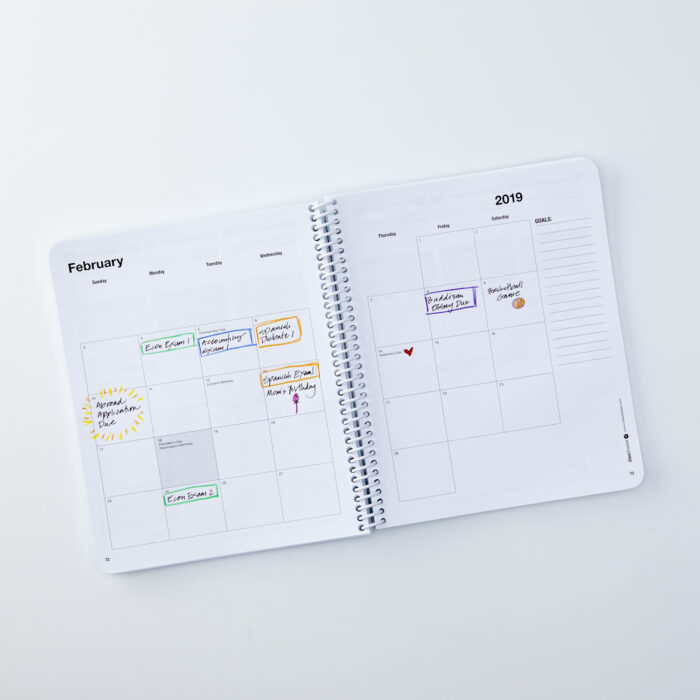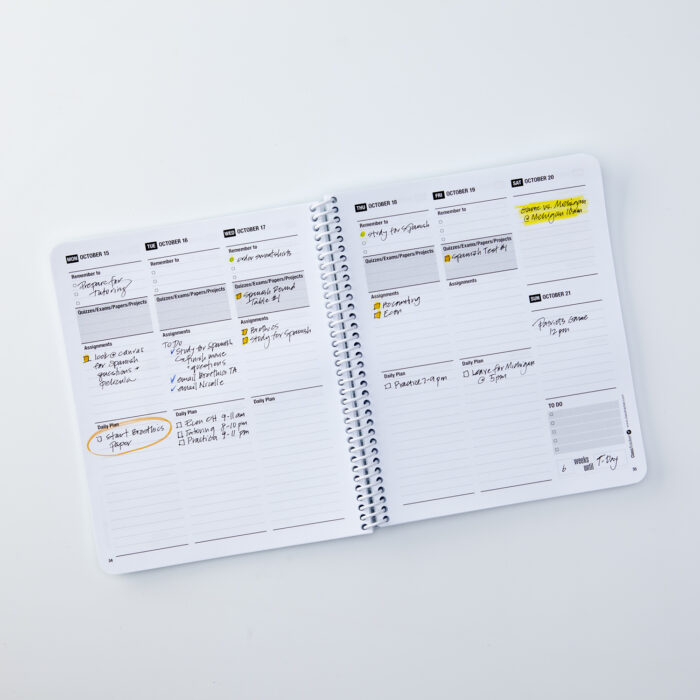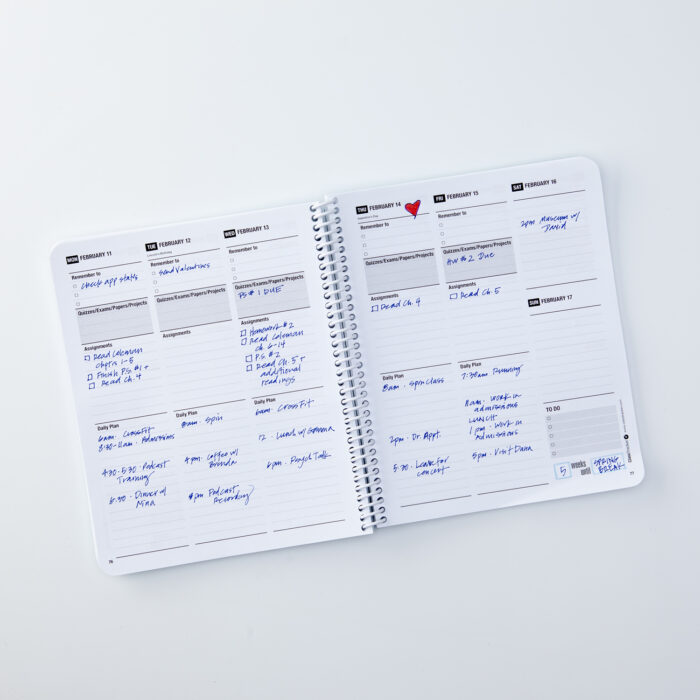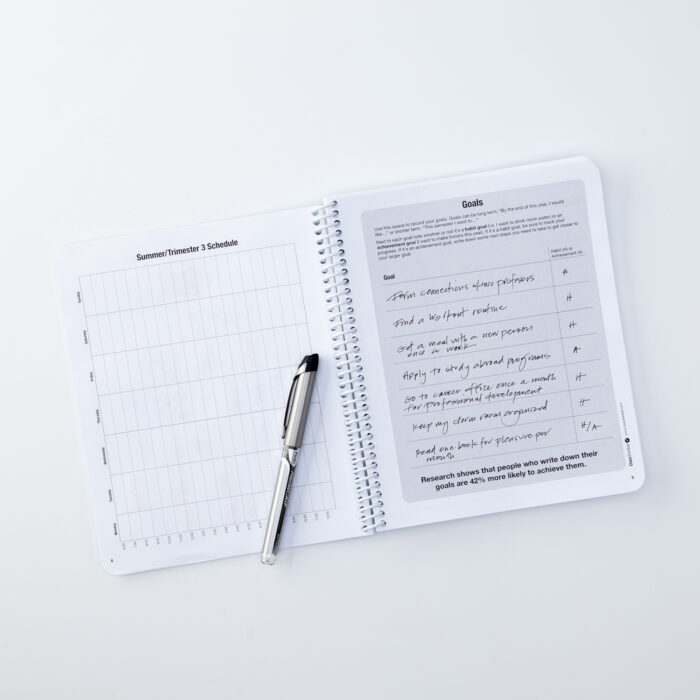How much of your success do you attribute to talent and skill? How much do you attribute to preparation and commitment? As it turns out, you can derive much of your success from thoughtful planning and forethought. With the right plan, you can get on track to accomplish your goals and succeed in academic, personal, and social pursuits. An integral component of planning is the use of a planner or agenda. When used effectively, a planner can help you keep track of everything from homework assignments to daily hydration. By utilizing your planner to its full extent according to our tips below, you can schedule your way to success!

Map out your month
Most planners have monthly spreads to display the entire month on one or two pages. While this spread might seem overwhelming at first, it can actually be useful in visualizing a big-picture view of your month, semester, and year. Write down any deadlines, big commitments, or activities on the squares of the days of the month. Review your syllabi and note any tests, papers, and other assignments for each class. For example, you might write “First Day of School” on August 24th or “History Test” on September 14th. You might also include “Homecoming” on October 16th or “Tennis Match” on October 24th. Given the long-term view of monthly spreads, mapping out your month will allow you to see when you need to start studying or working on big tests and assignments. This practice will also remind you of exciting events in the future, like sports games or social events.
Map out your week
After you’ve mapped out your month, you can focus on mapping out your week. Pick a day and time every week and make it a ritual. For example, sit down every Sunday evening with a cup of tea and your planner to schedule your week. Knowing your commitments and plans for the week ahead helps you feel prepared, dissipating some of those Sunday Scaries that we’re all familiar with. Start by rewriting those assignments, tests, and other deadlines, along with any daily homework that you have. You might separate your assignments by class using labels, stickers, or different colors of pens for each class. Find a system that works for you and start planning!
After you have written your academic coursework and assignments on your weekly spread, you’ll also want to include your personal and social activities. If your planner has an “Activities” section, include them there. These activities can range from volunteering to hanging out with friends or anything in between.

Block out your time
Now that you have all of your academic, personal, and social commitments written down in your planner, you’re going to need an effective system to get them done. Often, students underestimate the time that it takes to complete an assignment. Additionally, students may prioritize social commitments before academic ones, resulting in procrastination and a rush to complete assignments before the due date. To avoid the anxiety of procrastination, try to block out your time on a daily basis. Each week, estimate the amount of time that you think each activity and assignment will take, and then write down the time that you will complete them. For example, if you have tennis practice from 3:30pm to 5:00pm, write that down next to “Tennis Practice” in the activities section of your planner. If you have math homework that will take about an hour, write down “Math Homework 5:30-6:30pm” in the assignments section of your planner. Blocking out time for assignments and other engagements will help you maintain a realistic view of the tasks that you can reasonably accomplish every day. You’ll avoid overcommitment when you know that you need a few hours each evening to complete your assignments. Additionally, if you have a big assignment due in the coming weeks, block out a half hour or an hour each day to work on the assignment. Instead of cramming information or writing an entire essay the night before the due date, you’ll get a little bit done each day.

Motivate yourself
Your planner can actually help motivate you to stay on track towards your goals. In the front or back of your planner, write down five to ten goals for the month, semester, or year. You can add to these goals or change them throughout the year. Reference your goals each week to make sure that you’re working towards their completion. If monthly or yearly goals are a little too long-term for you, consider writing weekly goals on your weekly spreads. These goals might be a little smaller, but they also might be more achievable and keep you motivated in the short-term. Beyond goal-setting, don’t forget to write down exciting events or activities to look forward to in the coming months. Whether it’s a concert with friends, a movie with your mom, or a big awards ceremony, writing these plans down can motivate you to keep going, even when you don’t feel like giving it your all.
Using your agenda to schedule your way to success might sound like a lot of work at first. You have to sit down with all of your syllabi, assignments, and social plans to map everything out for the week and the month. However, writing things down is incredibly calming and reassuring! Now that I’ve made planning a part of my routine, I actually look forward to sitting down with my planner each week and compiling my schedule. I enter the week feeling prepared for what’s to come and knowing that I’m on track to accomplishing my goals.



